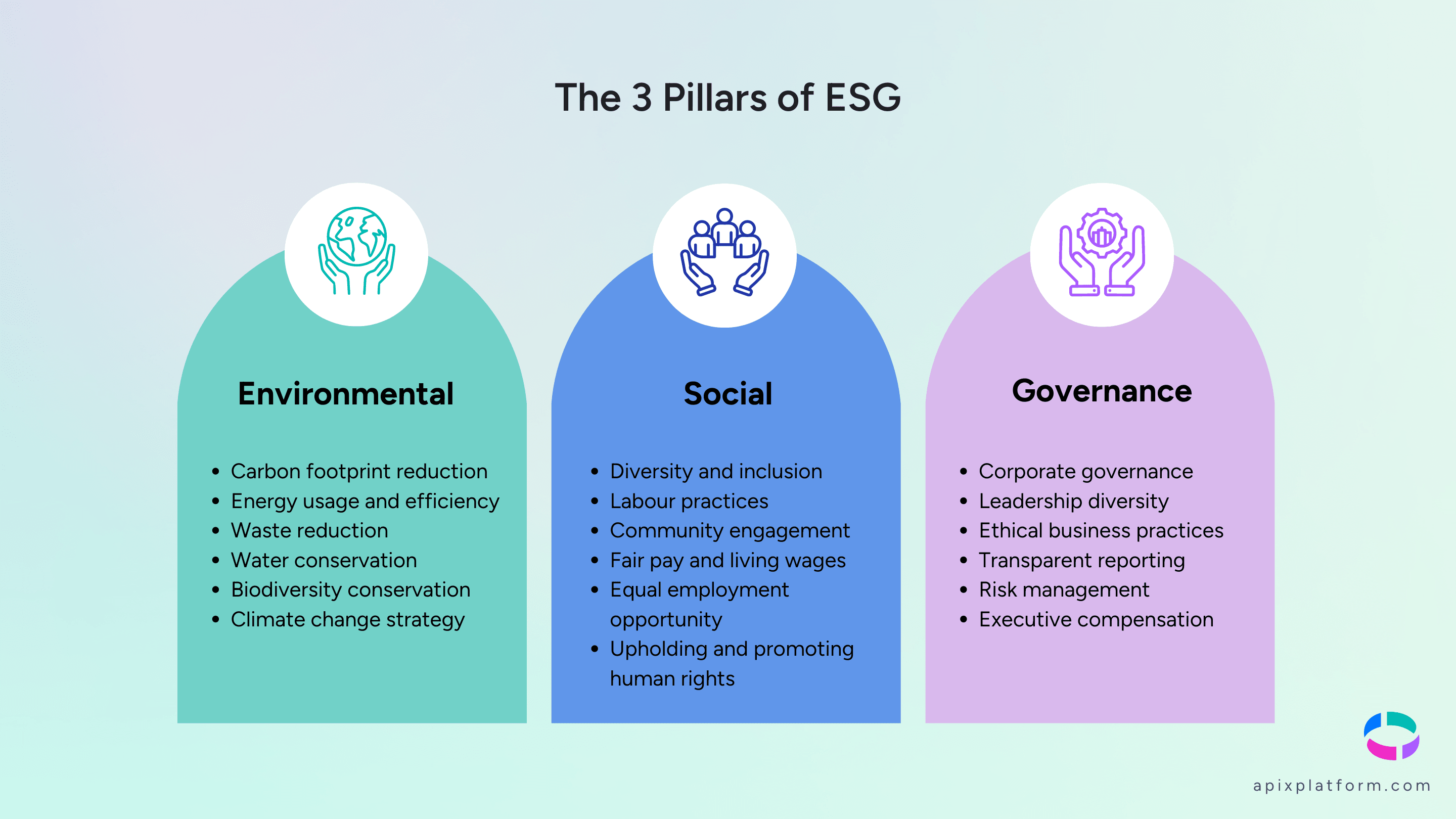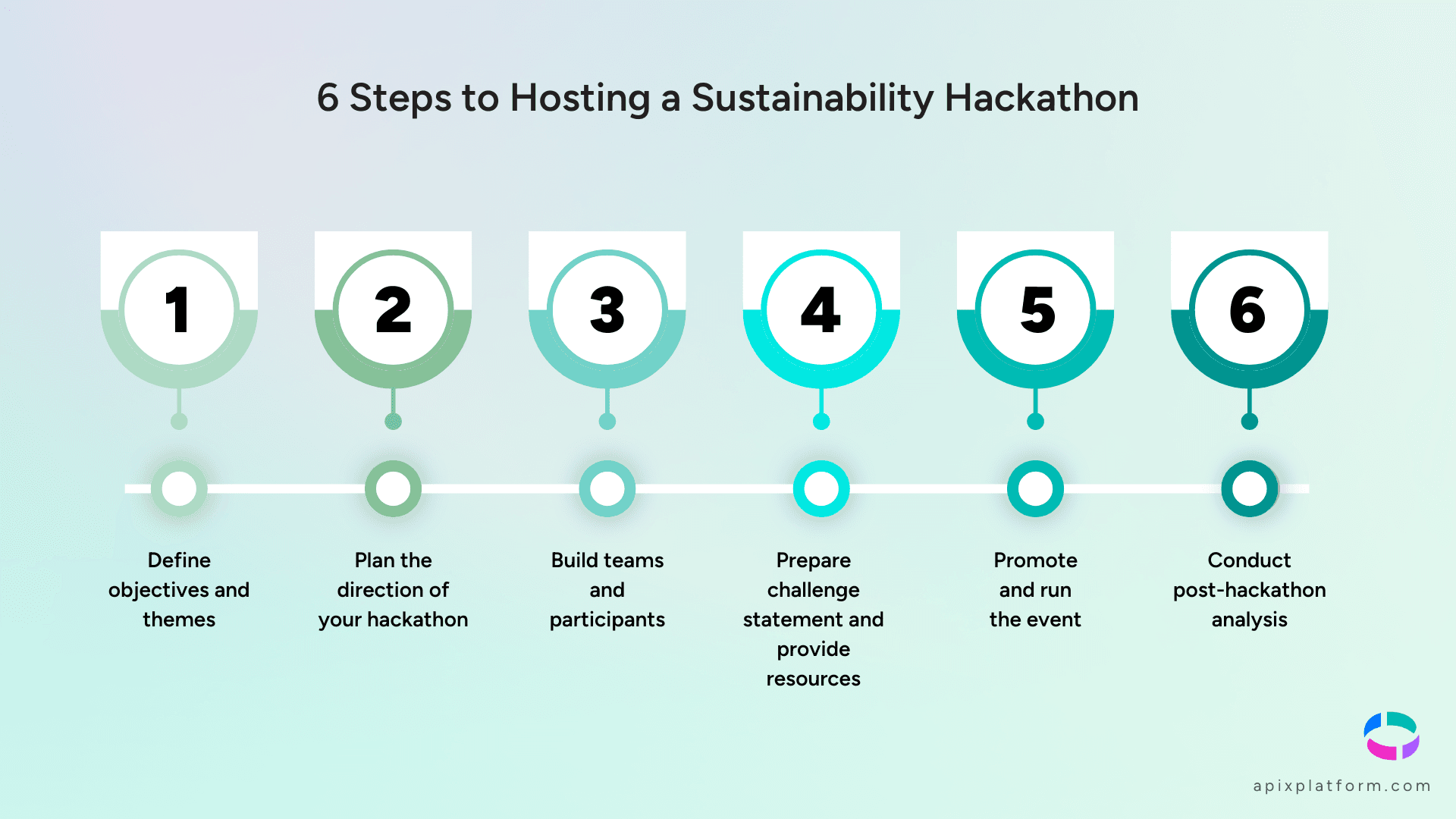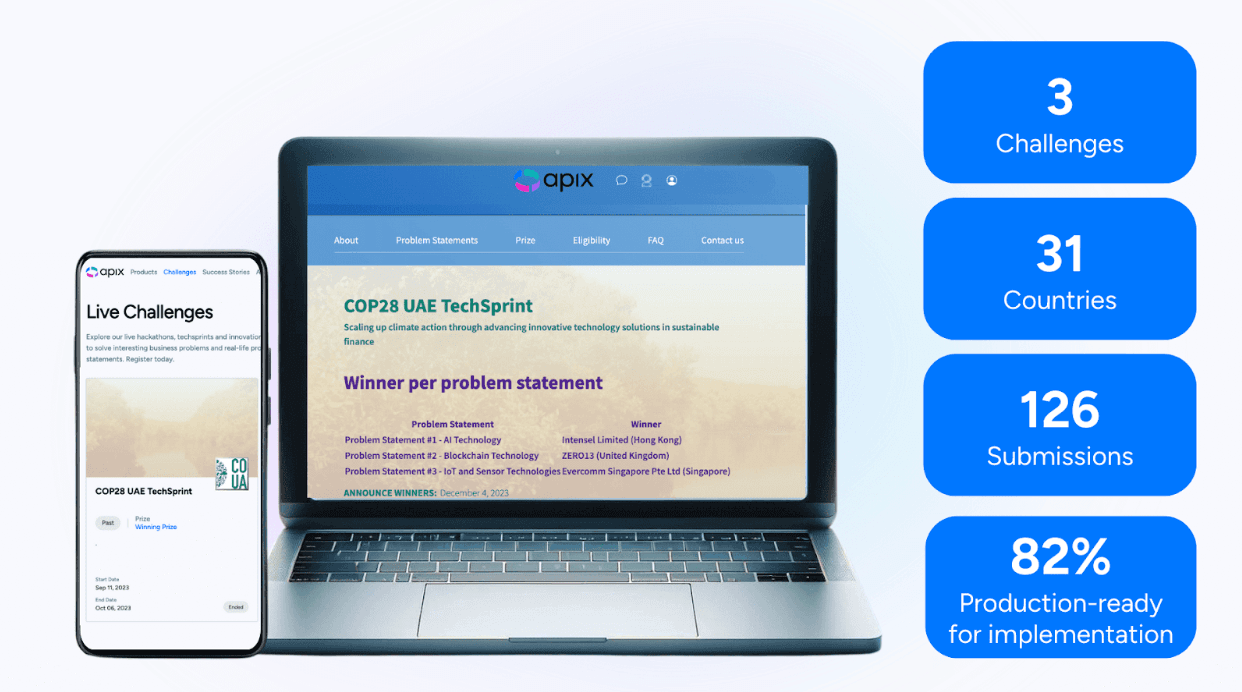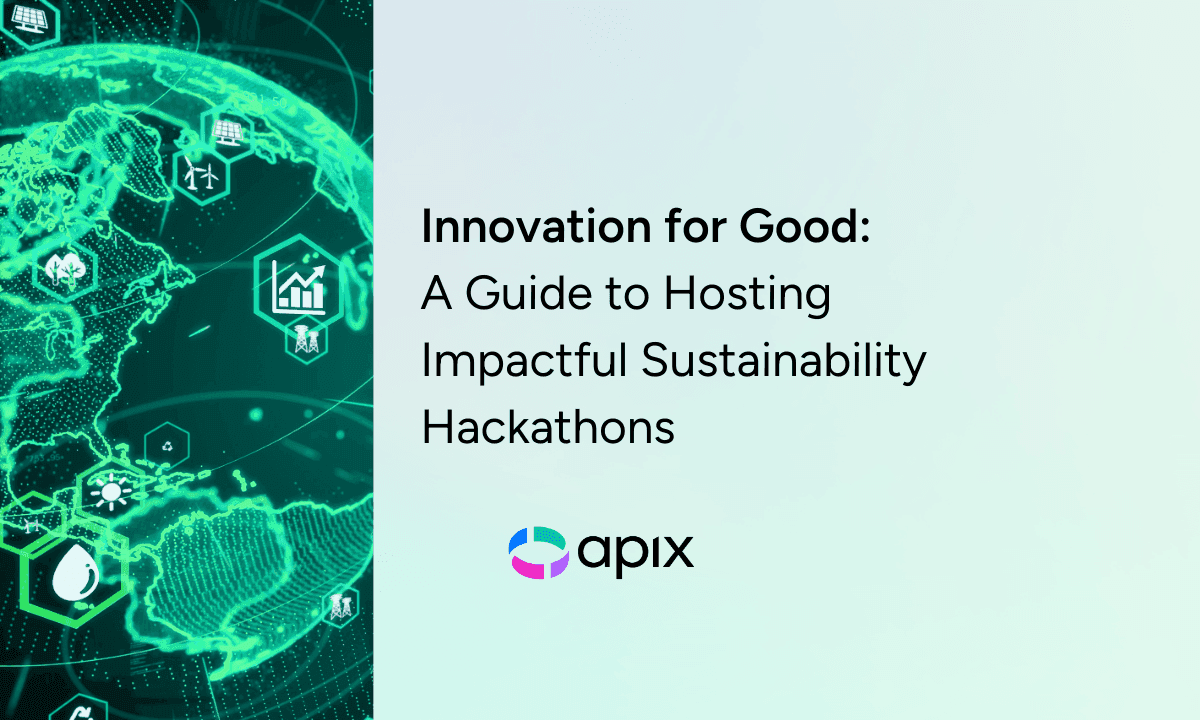In an era where sustainability and environmental, social, and governance (ESG) factors are paramount, financial institutions are actively seeking innovative strategies to integrate these principles into their core operations. One powerful approach gaining traction is hosting sustainability hackathons.
But what benefits do these challenges offer, and how can you ensure successful execution? This comprehensive guide serves as a roadmap for financial firms and organisations looking to effectively host an impactful sustainability hackathon, paving the way towards a greener future.
Overview:
- What are sustainability hackathons?
- Why invest in a sustainability hackathon?
- Steps to hosting a sustainability hackathon
- Tips for a successful sustainability hackathon
- Case study: COP28 TechSprint
- Create an impact with APIX
What are sustainability hackathons?
Sustainability Hackathons or Challenges, also known as Green-tech hackathons, Social hackathons, Green techsprints or ESG Hackathons, are events focused on developing innovative solutions that address environmental, social, and governance (ESG) challenges.
Unlike traditional hackathons, which may focus on general innovation or technology development, sustainability hackathons are specifically geared towards creating impact-driven solutions that promote sustainable business practices.
The three pillars of ESG

For the uninitiated, ESG is a framework that investors use when measuring an organisation’s sustainability aspects. The three pillars are:
- Environmental: Focuses on the impact an organisation has on the planet. It includes practices such as reducing carbon footprints, improving energy efficiency, and managing waste.
- Social: Involves how a company manages relationships with employees, suppliers, customers, and communities. Social criteria include diversity and inclusion, labour practices, and community engagement.
- Governance: Addresses the standards for running a company. It includes leadership diversity, business ethics, and transparent reporting.
Understanding these pillars is crucial for designing hackathon themes and crafting challenge statements that best align with sustainable business practices.
Sustainability Hackathons vs. Traditional Hackathons
When comparing sustainability hackathons to your traditional hackathons, there are several key differences:
| Sustainability Hackathon | Traditional Hackathon | |
|---|---|---|
| Objective | Develop solutions for ESG challenges | General innovation and technology |
| Theme | Focus on environmental, social, or governance issues | Broad technological or product-based problems |
| Outcome | Impact-driven solutions promoting sustainability or ESG | Product development or technical advancements |
| Participants | Diverse teams with an interest in sustainability | Diverse teams, but primarily tech enthusiasts and developers |
| Metrics of Success | Alignment with sustainable investment development goals (SDGs), long-term impact, or sustainability index such as CO2 emissions reductions, energy consumption, waste reduction, etc. | Market viability, technical feasibility |
Why invest in a sustainability hackathon?
In the financial sector, sustainability hackathons can be particularly impactful. A sustainability hackathon focuses on developing financial technologies that support sustainable development goals (SDGs). These might include solutions for green finance, sustainable investment platforms, or tools for ESG reporting and analysis.
Beyond that, investing in a sustainability hackathon also brings about the following.
Greater returns on investment
Incorporating sustainability and ESG into business strategies can lead to better financial performance. Companies with strong ESG practices often see improved risk management, operational efficiencies, and cost savings, leading to greater returns on investment.
Boost brand reputation
Hosting a sustainability hackathon demonstrates a commitment to responsible business practices. This can enhance brand reputation, attract socially conscious consumers and investors, and differentiate financial institutions in a competitive market.
Long-term benefits of efficiency
Sustainability initiatives often lead to increased efficiency and resilience. By developing solutions that reduce waste, optimise resources, and improve processes, financial institutions can achieve long-term operational benefits.
Steps to hosting a sustainability hackathon

With that, let’s look into how you can host your own sustainability hackathon.
Define objectives and themes
Start by defining clear objectives aligned with your ESG strategy. Choose themes that address specific sustainability challenges relevant to your organisation and industry.
Plan the direction of your hackathon
Outline the structure, schedule, and key activities of the hackathon. Ensure that the event format supports collaboration and innovation, with adequate time for brainstorming, development, and presentation.
Build teams and participants
Recruit participants with diverse backgrounds, including developers, designers, business experts, and sustainability advocates. Form teams that can leverage their combined expertise to create impactful solutions.
Prepare the challenge statement and provide resources for support
Craft a compelling challenge statement that clearly articulates the problem to be solved. Provide participants with access to necessary resources, such as data sets, development tools, and mentorship from industry experts.
Promote and run the event
Use various channels to promote your hackathon, including social media, industry networks, and partnerships. During the event, facilitate a productive environment with workshops, Q&A sessions, and progress check-ins.
Conduct post-hackathon analysis
After the hackathon, evaluate the outcomes and impact of the solutions developed. Gather feedback from participants and stakeholders to identify areas for improvement and potential for further development.
Tips for a successful sustainability hackathon
Provide Adequate Resources
Ensure that teams have access to the necessary resources, including data, tools, and mentorship, to develop innovative solutions. Collaborate with knowledgeable partners like APIX for expertise in managing your ESG hackathon.
Emphasise Sustainability
Incorporate sustainable practices throughout the hackathon, from the materials used to event logistics. Encourage participants to consider the environmental impact of their solutions.
Celebrate Achievements
Recognise and celebrate the achievements of participants through awards, recognition, or continued support for implementing solutions. Highlighting success stories can inspire further innovation and engagement.
Case Study: COP28 TechSprint

The COP28 TechSprint is a prime example of a successful sustainability hackathon. This event brought together diverse teams to develop solutions addressing climate change and promoting sustainable development.
Three problem statements along the theme of sustainable finance were created:
- Problem Statement 1 on AI technology:

How can we automate and increase the adoption of standards in sustainable finance using AI technology to unlock the value of vast troves of unstandardised sustainability data?
- Problem Statement 2 on blockchain technology:

How can we ensure data integrity in sustainable finance using blockchain technology to increase investor and market confidence by enhancing transparency, traceability, and accountability?
- Problem Statement 3 on IoT and sensor technology:

How can we enhance data collection in sustainable finance using IoT and sensor technologies for monitoring and capturing data to improve accuracy and ensure informed assessments of impact, risk, and compliance?
The result was a remarkable success, with 15 finalists being selected from the 126 submissions from over 31 countries. Beyond numbers, the event also fostered new dialogues and partnerships, setting the stage for continuous innovation.
APIX proved to be the ideal partner in hosting this sustainability hackathon with our global collaboration hub attracting a record number of submissions demonstrating participants’ commitment to addressing sustainability challenges in the financial sector.
Create an Impact with APIX
Sustainability hackathons offer financial institutions a unique opportunity to drive innovation while advancing their sustainability and ESG goals. In a world driven by creating impact, hosting these hackathons can help in developing innovative solutions, enhance their reputation, and achieve long-term benefits.
Partnering with experts like APIX ensures the success of your sustainability hackathon, creating lasting positive change in the financial sector.
To create an impact for your organisation, schedule a call with our team of experts today. Let’s collaborate to innovate.
